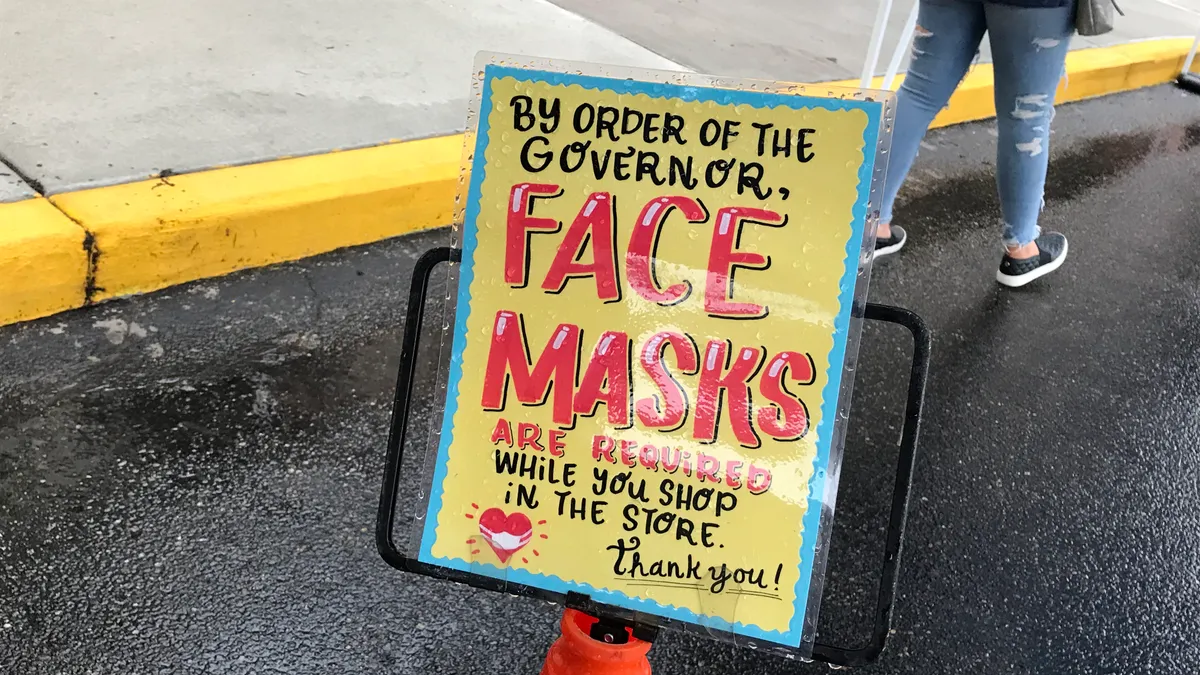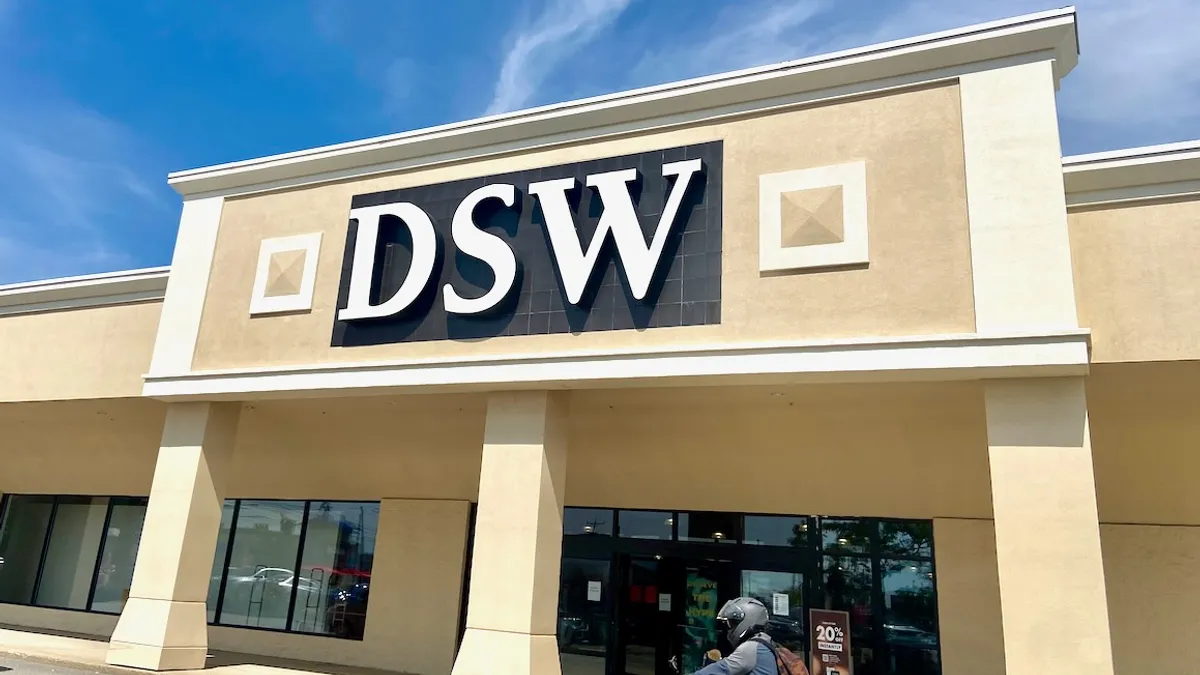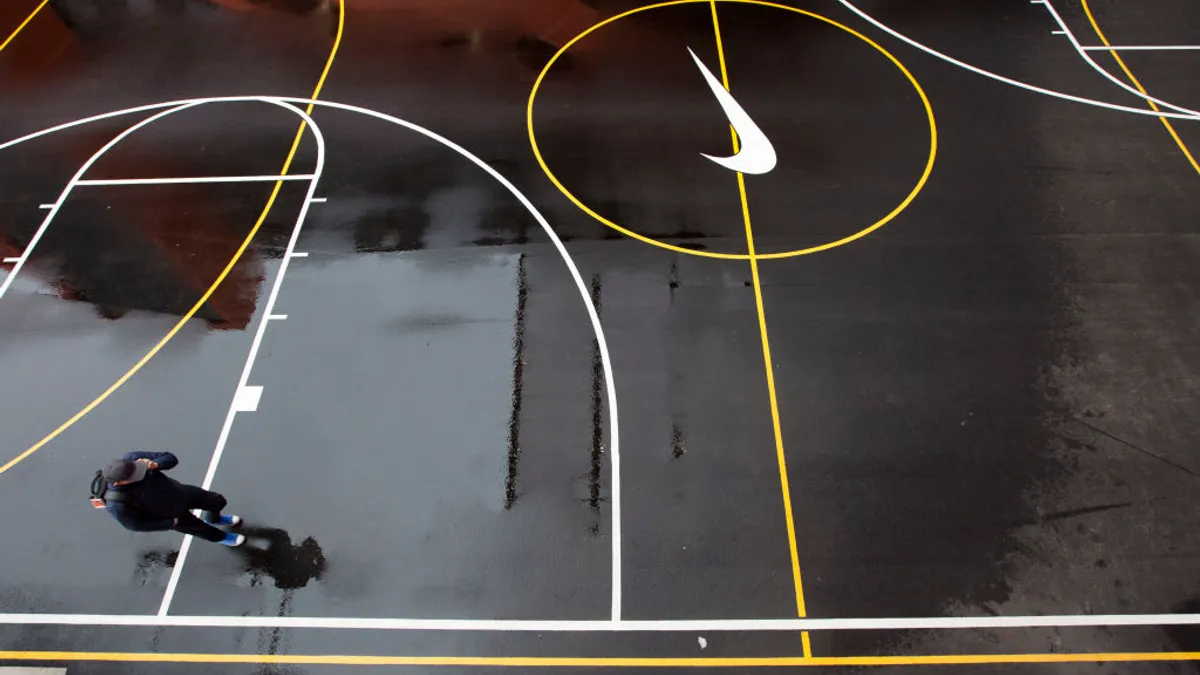A change in mask-wearing guidance from the Centers for Disease Control and Prevention Tuesday — urging even vaccinated people to wear masks indoors in areas with "substantial or high transmission" — signaled fresh worry about a pandemic that earlier this year seemed to be on the wane in the U.S., thanks to the rapid development and distribution of vaccines.
A stock market dip the week before was also attributed to rising concerns about a mutation of the COVID-19 coronavirus known as the delta variant, which is proving to be even more contagious than the strains that took such a toll last year. Hospitals in some areas are once again under pressure. For developing and poor countries, which have the lowest vaccination rate, the problem is access to vaccines, according to the International Monetary Fund, which on Tuesday warned the delta variant threatens the global economy. In the U.S., nearly all patients with serious illness have been unvaccinated, in part due to vaccine hesitancy.
The National Retail Federation took on that issue in its response to the new guidance.
"It is truly unfortunate that mask recommendations have returned when the surest known way to reduce the threat of the virus is widespread vaccination," the group said in a statement Tuesday. "The CDC's latest guidance underscores the urgency for more Americans to become fully vaccinated so we can all emerge from this pandemic."
While the news is alarming, a repeat of the lockdowns of last year that hit the retail industry so hard seems unlikely. Still, the delta variant is already affecting retailers in three fundamental ways.
1. Masks
The CDC's renewed mask recommendation, which extends guidance from May to include vaccinated as well as unvaccinated people, brings back a thorny issue for stores and retail workers.
The NRF made clear that retailers are on board, however, noting that taking the steps recommended by health officials is how to keep businesses running, and running safely.
"Public health and safety is always the number one priority for retailers large and small," the group said. "To be sure, retailers will continue to follow the guidance of the CDC and other public health experts to protect our associates, their families and our customers. We want every business to remain open, we want to keep people employed, and we want to ensure that consumers have access to the goods and services they expect and need."
Despite a high level of protection against COVID-19 transmission, wearing masks became controversial last year, and the enforcement of mask rules put retail workers in difficult and sometimes even dangerous positions. To help take the pressure off themselves and their employees, retail executives last year called on political leaders to step in, though many Republican governors and mayors have been reluctant to do so.
In a Tuesday statement, Retail Industry Leaders Association President Brian Dodge stopped short of that this time, but urged consumers to get the vaccine and respect those who cover up.
"As the virus changes, variants spread, and vaccine hesitancy in some populations continues, retailers understand that CDC guidance may evolve and masks may be necessary again in some circumstances," he said. "We ask customers to be mindful of the guidance provided by local retailers, and that they respect employees and their fellow customers who may continue to wear masks for the safety of themselves and their family."
The United Food and Commercial Workers union, which represents 1.3 million food and retail workers, called the CDC's new mask policy "critical" but also said it didn't go far enough. "With COVID cases continuing to surge, essential workers have been forced to play vaccination police because of the confusing patchwork of state and local mask policies," UFCW International President Marc Perrone said in a statement. "Urgent action is needed from states and retailers to strengthen COVID safety enforcement so the burden doesn't fall on the shoulders [of] essential workers already stretched thin."
The mask guidance, and any reignited anxiety about the virus it may represent, could also keep shoppers out of stores, which could hurt sales in general but is likely to also stoke e-commerce.
2. Consumer confidence and the economy
In a press conference the day after the CDC released its new guidance, Federal Reserve Chairman Jerome Powell said that, thanks to vaccines and the adjustments companies have made in order to persevere, a variant or surge wouldn't likely hurt the economy the way the pandemic did last year. But, he said, it could slow the economy down.
"You could imagine school districts deciding to wait a month or two for the delta wave to quiet," he said. "It's also easy to imagine that some people might say, 'You know what ... I'm just going to wait a couple of months before going back to work.' ... If schools don't open, then caretakers have to stay home, and if people don't go back into the labor force, then the job growth won't be as strong, those kinds of things."
In fact, there are some signs that consumer confidence, already a little shaky even though the pandemic's restrictions have eased, is wavering. On Wednesday, Morning Consult's Index of Consumer Sentiment was down 4.6 points from July 1, coinciding with the recent pandemic surge — the lowest reading since March 9 and the sharpest 3-week decline since November. According to a mid-July report from the Forbes Advisor-Ipsos Consumer Confidence Tracker, the greatest decrease was in the West, where the delta variant is strong, and the suburbs (where malls are pinning their hopes) saw a "large dip in confidence," although the jobs index and purchasing confidence were unchanged from the previous two weeks.
Concerns about the delta variant also contributed to store traffic declines in July, according to research from RetailNext.
3. Supply chain
Retailers have hastened to accommodate not just the pandemic's hit to demand, but also the upheaval in manufacturing and shipping that scrambled their inventory.
Supply bottlenecks and shortages have also led to inflation, which Wells Fargo economists warned on Wednesday could lead to bigger problems for consumer spending and the wider economy. Should issues continue, inflation could persist, they said.
"The delta variant is on the rise, and we are not turning a blind eye to rising COVID case counts or [are] of the belief that the pandemic is over," economists Sarah House, Tim Quinlan and Shannon Seery wrote in emailed comments. "That said, inflation has edged out COVID as the predominant concern among financial markets, businesses and households for the better part of this year."
The continuing strain on retailers' supply chains is linked to the pandemic, however, and is therefore hardly helped by added variants of the coronavirus, especially in some areas of the world. On Tuesday, the American Apparel & Footwear Association urged "the equitable global distribution of COVID-19 vaccines," and said the pandemic remains at crisis levels "in several partner countries, including Vietnam, Bangladesh, and Indonesia, among others."






















